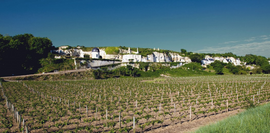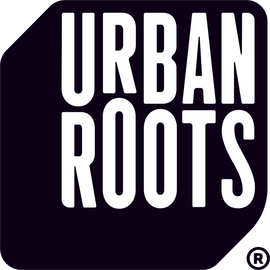Corsica
Corsica, a Mediterranean island located southeast of mainland France and west of Italy, has a rich and complex history shaped by various civilizations, conquests, and cultural influences. Corsican wine has a long history as well, deeply tied to the island’s warm, dry climate; diverse, mountainous terroir; and wide cultural influences going back to the Phoenicians, Greeks, Romans, the Genoese, and most recently French. Today, Corsica produces high-quality wines that blend indigenous grape varieties with modern winemaking techniques.
The Phoenicians and Greeks introduced viticulture to Corsica around the 6th century BCE. The Romans expanded cultivation, recognizing the island’s potential for winemaking. In the medieval period, under Pisan and Genoese rule, vineyards thrived, and many traditional grape varieties were established. After France took control in 1768, Corsican wine was overshadowed by mainland French wines. However, in the 20th century, there was a resurgence in quality and recognition.
Corsican wines are distinguished by their use of indigenous grape varieties. Sciaccarellu is an early budding varietal, light in color with naturally high alcohol. Known as Mammolo in Italy, it is often blended with Sangiovese to add a floral lift, but on its own it creates soft, spicy, easy to enjoy red and rosé wine. Nielluccio is the third most common grape to Corsica. Originally a Sangiovese clone brought by the Genoese in the 1200s. Nielluccio is the more important of the two, bringing power and noticeable tannins, color and acidity. Savory flavors of tomato leaf are present, along with a hint of dark cherries and dried herbs. Sciaccarello adds finesse and fleshiness as well as its characteristic violet aromas and red fruit flavors, seasoned with black pepper. These grapes, when blended, usually have a distinct herbal aroma, likened to the aromatic maquis scrub of the island, and similar to the French garrigue.
Domaine Vico was founded in 1901 in the village of Ponte-Leccia, in the northern sector of the Mediterranean island of Corsica. Surrounded by imposing mountains, it is an historic estate with vineyards in the center of the island (Centru di Corsica), in the foothills of those dramatic peaks. This is a remarkably rugged and beautiful place, with arguably the most complex terroirs found anywhere in the wine world (schist, basalt, galets roulés, gravel, clay). It is here that owner and winemaker Manu Venturi has taken his mix of native Corse varieties, grown at an altitude of 300+ meters, and turned this unique domaine into one of France’s shining beacons for biodynamic farming and transparently pure Corsican wines.
The history of the Venturi family’s connection to Domaine Vico began when Manu Venturi’s father Jean-Marc graduated from oenology school and, in his early thirties, took over the management of a cooperative on the east coast of Corsica. During the 1980’s, the Vico family had fallen into financial difficulties, eventually selling their magnificent estate to Jean-Marc in 1987. He was of few means at the time and had to borrow and work elsewhere to slowly rebuild the estate, which had an exceptional terroir, but no practical tools needed to run a successful winery. As a child, Manu was alongside his father during this journey, watching him work at the co-op during the week and working tirelessly at Vico on the weekends. As an adult Manu studied law, business, and sustainable tourism before finally coming back to take over the family estate. After 20 years investing every penny he had, Manu’s father had built an amazing domaine that could finally be passed down to Manu.
Under Manu’s leadership, the domaine has cemented itself as one of the top estates on the island. Manu sees himself as a guardian of this land and heritage, stating “My philosophy is the same everywhere; High environmental value, organic agriculture, biodynamic agriculture, permaculture, breeding, bee-keeping … I made these choices for the preservation of my island, my land, the men and women who live there and, more globally, the planet. I am not a utopian, nor an esoteric dogmatic, I am simply a farmer in love with nature. Every day I work on this alchemy; I try to observe it, understand it and accompany it simply to pay homage to it. This makes me and my wines better. If not better, then at least consistent with what we are and what our land expresses.”
|
Domaine Vico “Forca di Pero” Corse Rouge |
|
|
Region / Country of Origin: Centru di Corsica, Corsica |
About the name: Forca di Pero is Corsican for “the fork of the pear tree”, referencing the various plots of the domaine that go into the wine About the winemaking: Certified biodynamic, 60% Niellucciu, 40% Sciaccarellu, Grown on schist and basalt terroir, Southeast facing sites with 30+ year old vines. 10% whole cluster, Indigenous yeast, Fermented and aged in concrete for 18 months, Unfined and unfiltered. Tasting Notes: A gorgeous Corsican red, showing bright and energetic flavors of pomegranate, raspberry, brambly wild strawberry, and oolong tea. There is a juiciness that is captivating and invites every additional sip. |
|
Winemaker: Manu Vinturi |
|
|
Price: $24.99 btl/$280.69 cs |
|
|
Suggested Food Pairing: Eggplant stuffed with ground lamb, Cannelloni with ricotta, kale and tomato, Pork belly with white bean puree. |
|
|
Domaine Vico “Forca di Pero” Corse Blanc |
|
|
Region / Country of Origin: Centru di Corsica, Corsica |
About the winemaking: Certified biodynamic, 100% Vermentinu 30+ year old vines are grown on blue schist terroir in south and southeast facing sites. Indigenous yeast, Fermented and aged in concrete eggs for 6 months Tasting Notes: This wonderful white shows aromas of grapefruit, candied lime, and sea spray. Full of tension with a salty minerality, the palate shows additional notes of white peach, lychee, and crunchy green apple core followed by delightfully zesty and lengthy finish. |
|
Winemaker: Manu Vinturi |
|
|
Price: $24.99 btl/ $280.69 cs |
|
|
Suggested Food Pairing: Charcuterie platters, Wild boar marinated in wine, brandy, juniper berries, and garlic, then braised with vegetables and tomato concentrate. |
|





